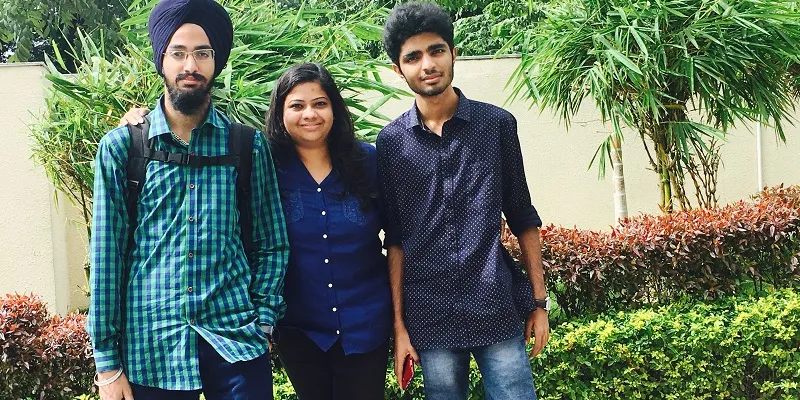With IMeYou, Vartika Manasvi aims to build top social networking platform for the sharing economy
PricewaterhouseCoopers estimates that the global sharing economy, worth $15 billion today, will hit $335 billion by 2025. IMeYou, which makes local information collaborative, is hoping to grab a piece of that pie.
New to Bengaluru, Anuj Singh wants to buy some Hindi fiction books. But he doesn’t know where to go and wishes he knew someone who shared his interest. It’s tougher because Anuj lives in a locality of Kannada speakers. A friend suggests IMeYou, an app that will connect him to people who have the books he’s looking for.
“I borrowed the books, made friends and returned the books after a month,” says Anuj Singh, who works as a restaurant manager in Bengaluru.
Such are the wonders of the sharing economy.
Every year, it is expected that more than six million students head to 56 cities in search of jobs. At their new destination, they must depend on local agents for information on rentals, food and local government rules. What if this was sorted for you on an app where a digital friend can answer queries dynamically? This is exactly what 30-year-old Vartika Manasvi has been trying to do for a couple of years.
Vartika, who completed her MBA course from JIIT, Noida, in 2010, built communities during her initial days at work, but chose to give up her corporate job when she realised that there was a business opportunity staring her in the face.

The world of collaborative consumption
“Most people would call their friends to know about a place or to know how to get something done,” says Vartika, who quit her job in December 2015 and started IMeYou as a side project.
“This was a project on Slack initially and I joined an Asian blog as a community manager to make some money to survive,” she says.
Vartika went about her idea with clinical precision. She on-boarded 300-plus people on the Slack group by doing Skype calls and telling them about her vision for IMeYou, where people share knowledge with each other and collaborate.
She envisaged IMeYou as a geo-social platform to context connect people at places that matter), as a social networking platform for the sharing economy.
“The objective of this experiment was to make one friend in every city who can help with local information and test digital trust among strangers,” she says.
Vartika was joined by two young engineers, Celento C George, 19, and Arshpreet Wadehra, 21, who came forward to help build this platform because they believed in the vision and the power of the community she was building.
The three of them formed a strong team and the Slack group supported them with UI suggestions.
By August 2016, less than a year after she had started work on IMeYou, the platform was built.
“From that Slack group we graduated to the web application and recently launched our mobile app for IOS,” she says.
IMeYou, which currently has 2,000 consistent customers, wants to democratise access to goods and services.
“It’s our vision to unlock the world of collaborative consumption where trust is the new currency,” Vartika says.
Efficient use of resources
The company’s business model is to take on traditional market behaviour pertaining to renting, lending, sharing, bartering and gifting.
On this platform, users will be able to generate the most efficient use of resources by extracting maximum value from products and materials while in use, and extending longevity through reuse at the end of a life cycle. So if you and your classmate want to read the same book why not invest in buying the book equally, share the cost and then redistribute it to someone who would want it?
“Currently we are not charging our users to engage with each other. It will evolve as we gather data on engagement levels,” Vartika says.
IMeYou is focusing on a micro-universe of college hubs where students can connect with each other to collaborate on needs like sharing hostel rooms, exchanging books and notes, planning project groups, finding accommodations, and inter-college connectivity.
The company has an investment of less than Rs 10 lakh and is yet to generate any revenues.
The future is bright
PricewaterhouseCoopers estimates the global sharing economy to be worth $15 billion today, a figure that is projected to hit $335 billion by 2025.
There are plenty of social sharing and discovery apps, including GoYaNo, Fashin and Loqation, on the market, but majority are yet to make money while some are struggling to stay afloat.
IMeYou is yet to deliver value and being a consumer business must spend for consumers to discover their app on a national scale.
But Vartika believes that the sharing economy drives huge benefits not only from the economic point of view, but also from environmental and social points of view.
Naganand Doraswamy, founder of IdeaSpring Capital, says: “All consumer businesses need to build on strong technology and must figure out a business model quickly otherwise history shows how money is lost to marketing instead of building a strong product.”
Vartika is hopeful that connecting people will help take her product forward. For now, we suggest you check out IMeYou if you want to share guitar/lessons, meet someone for coffee or exchange notes on rental apartments.
Read Also: Why Startups need to work with Corporate?







